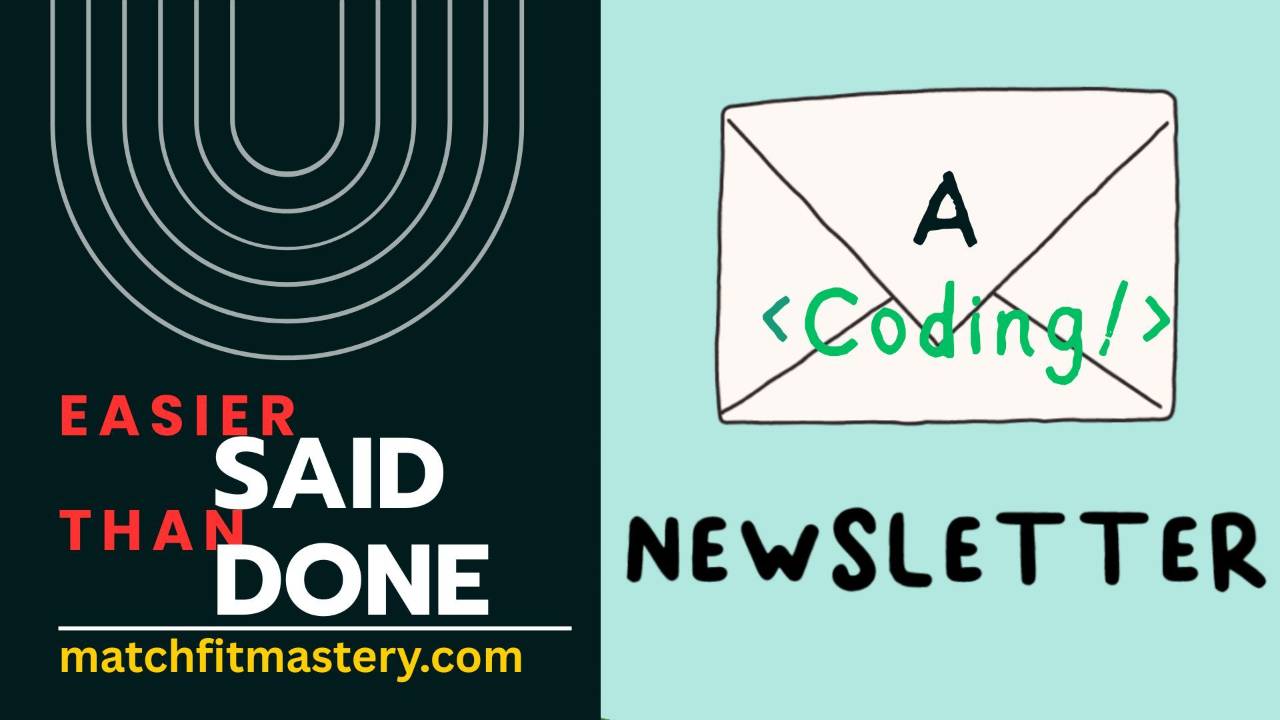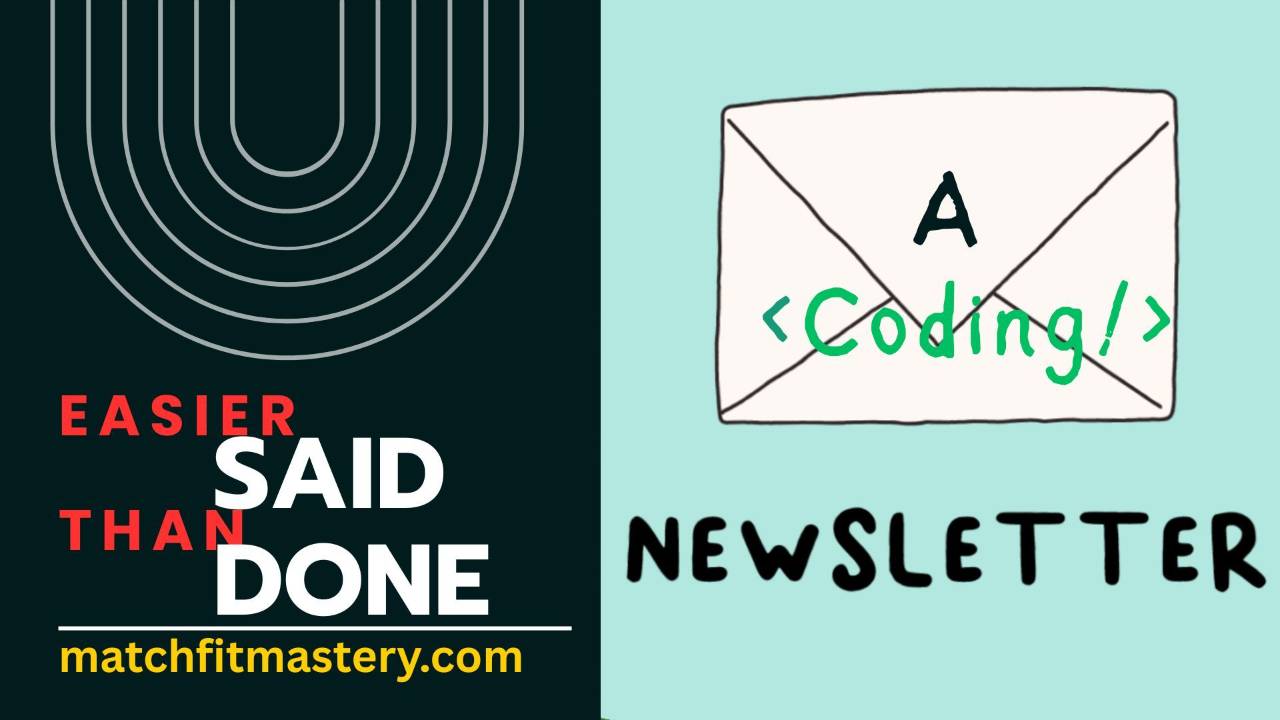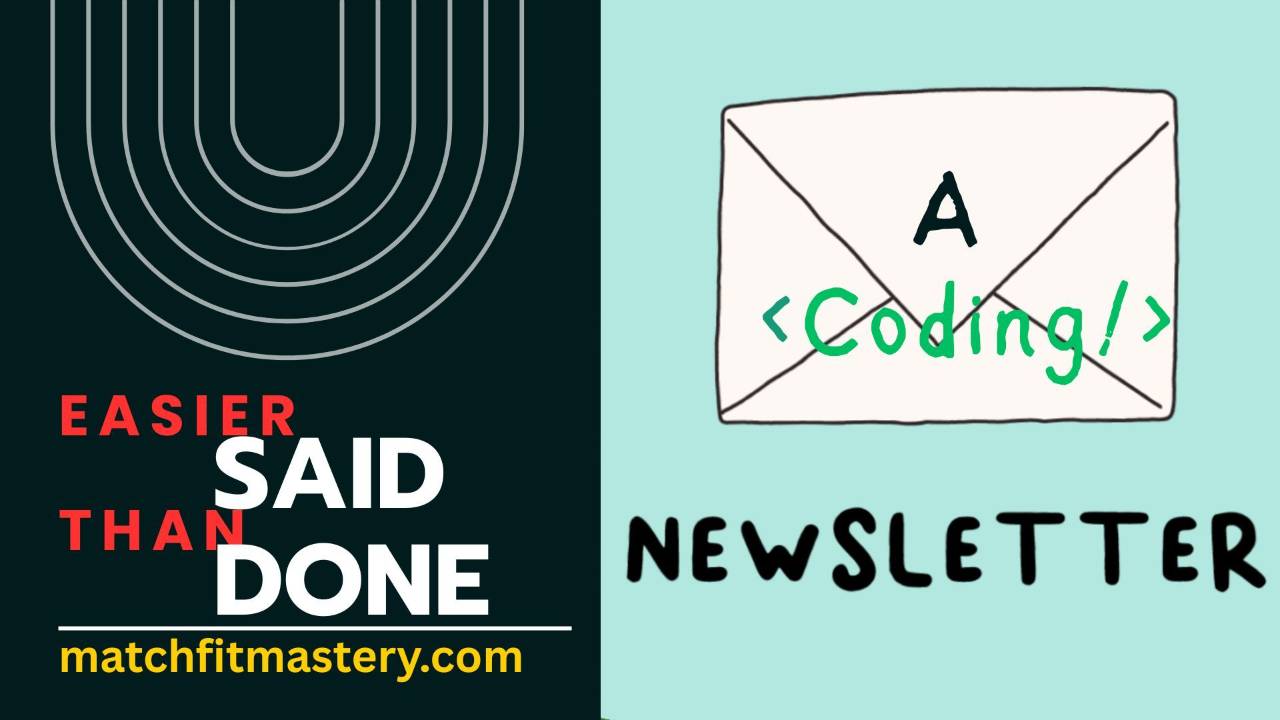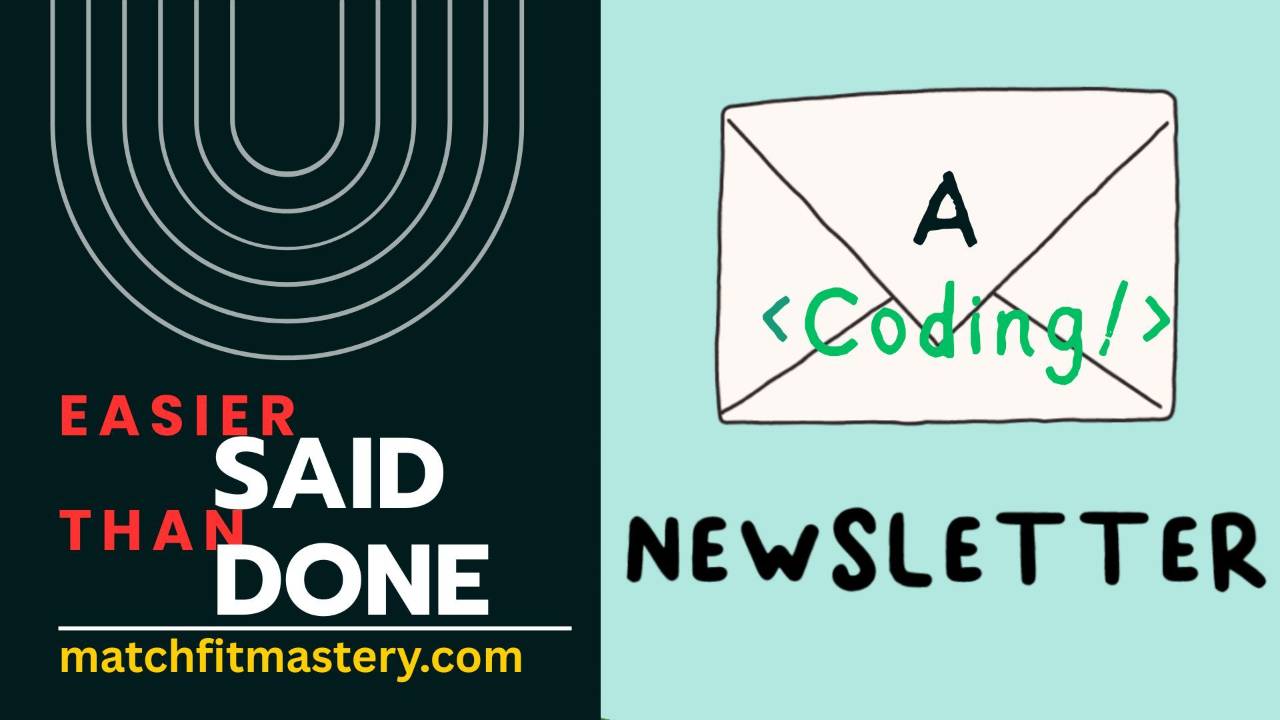The Real Reason You're Not a Professional Coder (It's Not What You Think)
When learning to code, there are a dozen things each week that will derail you.
I’m going to tell you how to be unstoppable at that.
Meaning that you cannot be stopped.
But…truth is, a million things will get in your way.
They’ll stop you dead in your tracks.
If you’re not prepared.
I know what it’s like to have big goals and dreams.
You want to make this change because you have a dream.
You yearn to build fancy apps. You crave working with smart people.
You wish you could earn more money. You dream about working flexibly, from anywhere you please.
You're ready to create a better future for yourself and your family.
Unfortunately, I could give you the complete roadmap to a coding job—everything you need to learn—and still, there is a very big probability you won’t make it all the way through.
And it won’t even be your fault. It will just be because you didn’t know how to get around the obstacles.
I know this because in my decade of coaching, I’ve seen that the real silent killer of the big coding dream isn't a lack of resources or even a tough job market.
It’s human psychology—your inner game.
Here are the 4 major reasons why people quit, even when they're so close to success.
You know it’s not BS clickbait because it’s not 3, it’s not 5, it’s not 10 reasons or 101 reasons.
Just four reasons.
-
The Overwhelming Start: You open your first course and are very soon hit by a wall of jargon. Incomprehensible words. But they’re in English! Complex setups that sound simple. Endless decisions that were glossed over, but you have to make. And you don’t know WTF they mean.
The simple act of beginning feels like an impossible puzzle, leaving you feeling defeated before you've even gotten to “Hello, World”.
-
The Crushing Weight of Frustration: Then you manage to get your app to do something small. You get excited and add something small. And everything breaks.
Now….You will spend hours, even days, on a single bug. AI can help. Often, it will say things to you that make no sense. It may be right. It may work. But you’ve no idea why.
Your initial excitement fades, replaced by a feeling of being completely lost and inadequate.
The impostor. The fake. AI’s minion.
This is the moment most people give up.
You’re unable to separate their self-worth from the code that refuses to work.
Or that works…but not because of you.
-
The Myth of Rapid Progress: You go online for inspiration. Your feed is FILLED with success stories online. They make it so easy. They say it was hard, but they sound so casual - almost like it wasn’t hard for them, but they’ve heard it’s hard.
And you wonder…why not me?
Why is it not easy for me?
Because your own journey is slower, MUCH slower.
There are tiny victories and there are monumental setbacks.
This comparison is like acid. It drips on your soul and corrodes your motivation.
Each day fades into the dark, leaving you to feel like a failure for not being on some unrealistic, accelerated timeline.
You must not be smart enough to code. Yeah. That must be it. -
The Lonely Journey: You make this a solo mission. It’s too embarrassing. You don’t want to be ridiculed for failing so much. You’d rather fail silently, helplessly, in private despair because the public humiliation would be unbearable.
Salt in your failure wounds.
But the truth is, success is always a team sport.
Always.
Without a community to turn to or a mentor who believes in you, moments of self-doubt can feel utterly isolating, magnifying every setback until you finally give up.
I mean, who wouldn’t? As Steve Jobs said, some things are so f*!@^#$@ hard that giving up is the rational thing.
This is where I do most of my work, as a matter of fact. As a coach, this is where I spend most of my time.
I see what my students can be. Not what they are. And I believe in them until they gather enough evidence to believe in themselves.
Sometimes, we need someone else to believe in us before we believe in ourselves.
Right?
So now what?
All these problems feel insurmountable, but there is hope.
You can learn how to overcome these psychological hurdles and just keep moving forward if you make it the foundation for learning to code.
Why?
Because your thoughts decide your actions. Think about it for a moment. It will explain everything.
So here’s how you develop a champion's mindset, one day at a time:
Step #1: Focus on the Psychology of a Winner
Understand this: without the psychology of a winner, you cannot stick to the plan.
I was a 39-year-old lawyer and tried for five years before I finally succeeded.
That journey taught me that my struggle wasn't with code, it was with my inner game.
Once I fixed my thoughts, my habits got better.
From there on, the technical skills were the easy part.
Just like athletes and public speakers prepare psychologically, you must do the same.
The mindset was the hard part. Because, unlike skills, bad luck or breaks can take your confidence away.
Which means mindset is and always will be the foundation.
Step 2: Reframe Frustration as a Sign of Progress
Here’s where so many go wrong: they see frustration and setbacks as proof that they’re not smart enough.
Do you feel that way, too?
Maybe deep inside, in a dark spot in your soul, you believe that if you were "a natural," learning to code would be easy.
I did too. Even though I was a very successful lawyer, I really thought I was not smart enough.
(Funny fact - after I became an engineer, I realised there are plenty of not-so-smart engineers. Engineers are people. People are smart and non-smart. Who knew!)
Thinking you’re not smart enough is a mistake.
It’s a self-fulfilling prophecy because of something called Amygdally Hijack (look it up..).
The fact that you're struggling is exactly what happens in the real world.
When you're stuck, do the opposite: assume that’s part of the process, and see it as proof of progress.
Because it’s going to happen a LOT when you’re a paid coder. And no one, except you, is going to be worried about it.
Step 3: Build Your Inner Game
This step, and the others before it, all ladder up to one goal: building your inner game so you can keep moving towards your goal.
You don’t need to be perfectly poised and “unflappable”. That is about as likely as being “fearless”.
Everyone, and I mean EVERYONE, feels fear and doubt and is inadequate at something.
Remember - Learning to code is a journey.
How’s that for a deeply original thought?
But also keep this in mind. Plenty of people, my students included, have broken through to the other side.
The trick?
The trick is NOT avoiding feelings of anxiety and helplessness. The trick is to have the psychological readiness to navigate them without giving up.
To ride over them like a boat rides over choppy water. It’s not always comfortable. But you’re not going to sink just because the water is choppy.
It’s perfectly normal. So are you.
If you're ready to do the real work and build the inner game that will finally get you to a coding career, check out episode 51 of my podcast - I’ve put Spotify and YouTube Links below.
Five ways we can help you:
1. Wondering what learning to code actually means?
Becoming a coder is much more than just "learning to code" some languages. When I was hired at Google, for example, I didn't know three out of the four languages I had to write every day.
If you're still wondering if coding is right for you, then I recommend:
👉 My FreeCodeCamp Course --> Before You Learn To Code (Video).
👉 Updated version (including Google and other big tech experiences)
2. Inner Circle (Free Preview Included)
Our personalized, intensive mentorship program is designed to help career changers go from zero to software developer—and get hired. It’s not for everyone, but if you’re ready to commit, we’ll walk with you every step.
👉Preview the Inner Circle Program -> free preview.
👉Apply for Inner Circle → parsity.io/inner-circle
3. Dev30
Want to learn the basics, but not quite ready for the Parsity Inner Circle? No problems - Try the Dev30 challenge!
It’s our 30-day JavaScript sprint focused on building real projects, learning in public, and creating a network in tech.
👉Join dev30 → dev30.xyz
4. Career Change To Code Podcast
Driving? At the gym? Hiding in the bathroom? Perfect time to inject the best techniques for a career change to code directly into your brain via
👉 Follow the podcast here: YouTube | Spotify
5. Weekly Tips In Your Inbox
👉 Subscribe to this newsletter (it’s free). I try and keep it to 3 minutes or less so you can read in the elevator, waiting in lines, in the bathroom...😝





